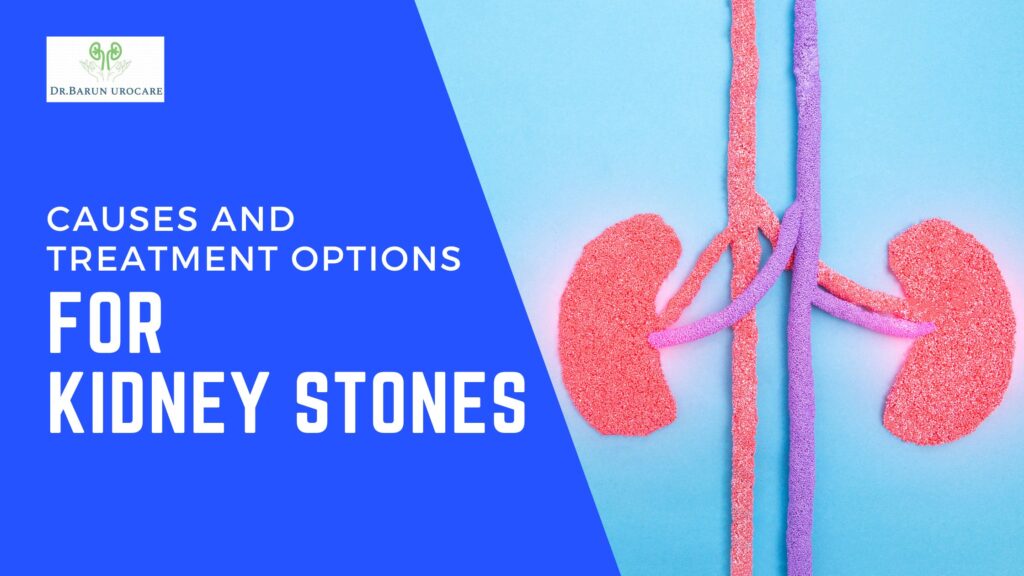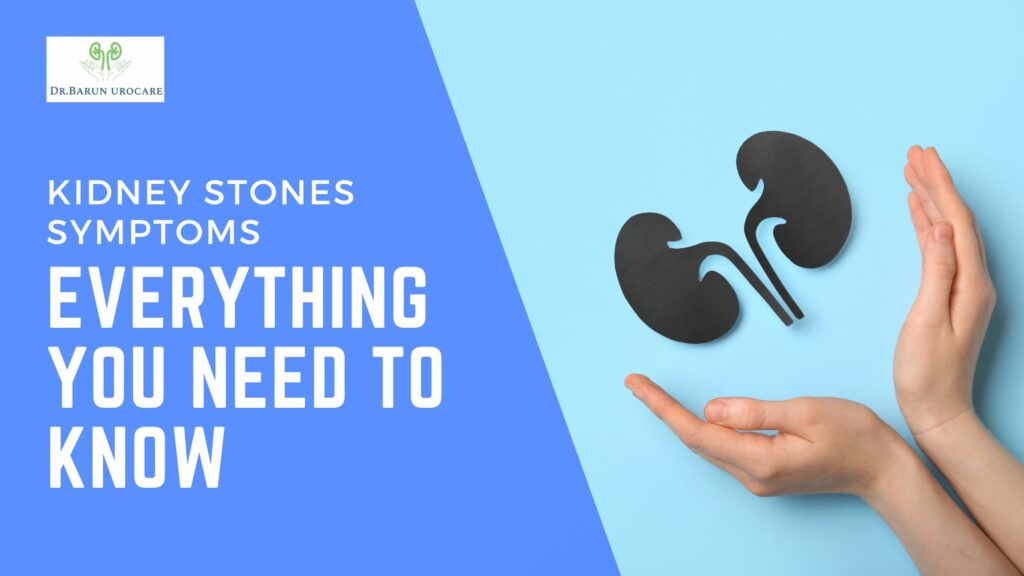Have you ever felt such awful back or lower abdominal ache that you thought you were going to pass out? Kidney stones could be the cause! You did hear correctly. The discomfort brought on by those tiny, hard deposits that develop inside your kidneys is unbearable. However, you are not by yourself in this. The good news is that kidney stones are treatable and afflict millions of individuals around the world.
We have already written an article about Kidney Stone Symptoms, you can check it out here. In this article, we will cover the causes, diagnosis, treatment options, and prevention of kidney stones. So, hold on tight, and let’s start!
Causes of Kidney Stones
Let’s explore the various causes of kidney stones in detail.
1. Dehydration and Low Fluid Intake
Did you know that having kidney stones increases your chances of not getting enough water to drink? Lack of fluid intake causes your urine to become concentrated, which makes it simpler for minerals and salts to crystallize and form stones. Because of this, maintaining hydration is essential for avoiding kidney stones.
2. Diet (High Oxalate, High Sodium, Low Calcium)
Kidney stone production can also be influenced by what you consume. You run a higher chance of getting kidney stones if you consume a diet heavy in oxalate-containing foods like spinach, chocolate, and almonds. Similarly to this, a diet high in sodium and poor in calcium can also raise the risk of kidney stone development. As a result, maintaining a balanced diet and watching what you consume is vital.
3. Medical Conditions (Hyperparathyroidism, Gout, Cystinuria)
Your risk of developing kidney stones may also be increased by certain medical conditions. For instance, hyperparathyroidism results in an excess of calcium in the blood, which can induce stone development. As a kind of arthritis known as gout, uric acid levels in the blood can rise and result in the development of stones. Cystine stones can develop in the kidneys as a result of cystinuria, a rare hereditary condition.
4. Family History
It may surprise you to learn that kidney stone development can also be influenced by your genes. You could be more prone to getting kidney stones if someone in your family has had them. Knowing your family history will help you take the appropriate preventive actions.
5. Medications (Diuretics, Calcium-Based Antacids)
Last but not least, some drugs can also make you more likely to get kidney stones. For instance, diuretics can cause dehydration, which can aid in the production of stones. Calcium-based antacids can also raise blood calcium levels, which can result in the production of stones. It’s important to discuss potential hazards and preventive actions with your doctor if you’re taking any drugs.
You can take proactive measures to stop kidney stones from forming by being aware of the many causes of kidney stones. You can check the symptoms of Kidney Stones here. Next, we’ll go over the diagnosis for kidney stones in the following part so you’ll know what to do when you experience the symptoms.
Diagnosis of Kidney Stones
Your doctor must make a diagnosis if you believe you may have kidney stones. Here are the procedures used most frequently to identify kidney stones.
1. Physical Examination and Medical History
The first questions your doctor will ask you about your symptoms and medical background. In order to look for symptoms of kidney stones, such as soreness in the back or abdomen, they might also do a physical examination.
2. Imaging Tests (Ultrasound, CT Scan, X-ray)
To confirm the existence of kidney stones, imaging tests are frequently employed. These might consist of X-rays, CT scans, or ultrasounds. These tests can help your doctor choose the most effective course of action by revealing the size and location of the stones.
3. Urine Testing
In order to look for infections or other illnesses that might be the source of your symptoms, your doctor can also request a urine test. Your doctor’s ability to treat you depends on the sort of kidney stone you have, which can be determined by this test.
The best course of treatment for you can be suggested by your doctor once kidney stones have been correctly identified. We’ll look at the several kidney stone treatments in the section after this.
Treatment Options for Kidney Stones
If kidney stones have been identified as your problem, you have a variety of treatment options. The size, location, and intensity of the symptoms will all influence the optimal course of treatment.
1. Pain Management
Although the pain from kidney stones can be excruciating, there are several ways to control the discomfort until the stones pass. A prescription painkiller or over-the-counter painkillers like ibuprofen or acetaminophen may be suggested by your doctor.
2. Medications (Alpha Blockers, Pain Relievers)
Your doctor can recommend drugs to assist you pass the stones in addition to pain relief. The ureter’s muscles can be relaxed with alpha-blockers, which makes it simpler for the stones to pass. The agony brought on by passing stones can also be lessened with the aid of painkillers.
3. Extracorporeal Shock Wave Lithotripsy (ESWL)
Your doctor might suggest ESWL if your stones are small enough. The stones are broken up into smaller bits that can be passed more readily with this minimally invasive surgery using shock waves.
4. Ureteroscopy
A tiny scope is inserted into the bladder and up the ureter to the stone’s location during ureteroscopy. Laser technology can be used to remove or fragment the stone after it has been found.
5. Percutaneous Nephrolithotomy (PCNL)
A small incision is made in the back during the minimally invasive PCNL treatment, which removes kidney stones using a scope.
6. Retrograde Intrarenal Surgery (RIRS)
RIRS is a procedure that involves inserting a scope into the bladder and ureter through the urethra. Laser technology can be used to remove or fragment the stone after it has been found.
The optimal course of action for treating kidney stones will depend on their size and location, as well as how severe your symptoms are. Consult your doctor to determine the best course of treatment for you.
Prevention of Kidney Stones
It is usually preferable to avoid kidney stones than to treat them. Here are a few strategies for avoiding kidney stones:
1. Increase Fluid Intake
It’s essential to consume enough water to prevent kidney stones. To keep your urine diluted and make it easier to pass stones if they do form, aim for at least 2-3 liters of water every day.
2. Modify Diet
In order to lower your risk of acquiring kidney stones, you can also change your diet. Limit your consumption of oxalate-rich foods including spinach, rhubarb, and chocolate. Reduce your sodium consumption because a high salt diet might cause calcium to accumulate in the urine. In fact, increasing your calcium intake through foods like milk, cheese, and yogurt can lower your chance of getting kidney stones.
3. Medications to Prevent Stones
In some circumstances, doctors may recommend drugs to stop kidney stones from forming. If you’re unsure about whether this is a good choice for you, talk to your doctor.
Conclusion: Causes and Treatment Options for Kidney Stones
Finally, kidney stones are an unpleasant and widespread condition that can affect anyone. We have covered kidney stone causes, diagnosis, treatments, and prevention strategies.
It’s crucial to keep in mind that dehydration and diet can both have a big impact on the development of kidney stones. Therefore, the key to preventing kidney stone formation is increasing your fluid intake and changing your diet.
It’s critical to get medical help right away if you encounter kidney stone symptoms including back, side, or lower abdominal discomfort, nausea, vomiting, painful urination, blood in the urine, or difficulty passing pee.
The variety of treatment options for kidney stones includes anything from pain relief to surgical procedures like ESWL, Ureteroscopy, PCNL, and RIRS. Depending on the type, size, and location of the stone you have, your urologist will discuss the best course of action for you.
In conclusion, you can avoid acquiring kidney stones by being aware of their origins and symptoms, as well as by taking the appropriate protective measures. If kidney stones do occur, early detection and fast treatment can help you feel better and avoid complications.
Lastly, if you are experiencing kidney stone symptoms and are searching for a urologist, just visit our contact page and get in touch with us.
Related article:
Kidney Stone Symptoms: Everything You Need to Know


